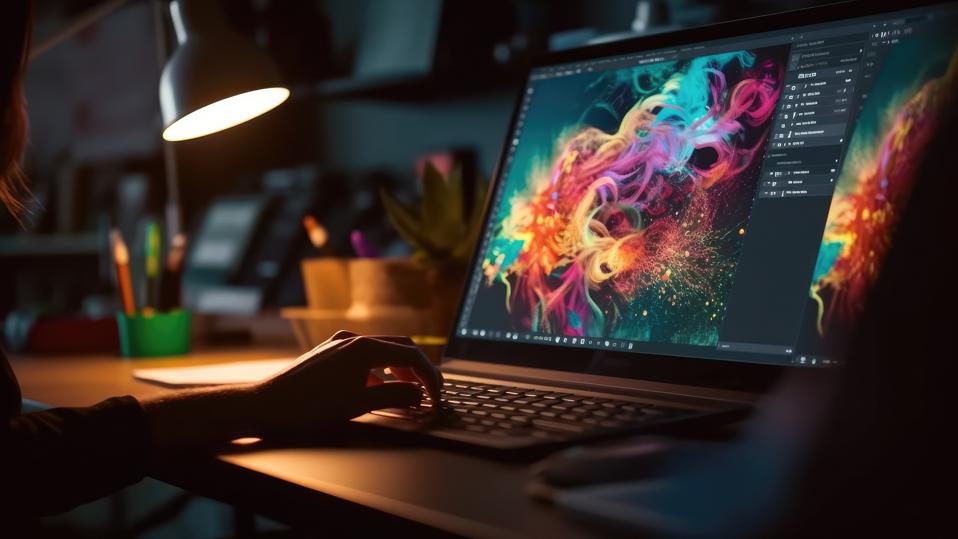In recent years, AI in design mentoring programs has become a hot topic in the creative industry. The integration of artificial intelligence into design education is not just a trend but a revolution that is reshaping the way digital creators learn and innovate. As the field of design continues to evolve, the role of AI is becoming increasingly significant. From providing personalized learning experiences to enhancing creativity, AI is unlocking new possibilities in design mentoring.

The Evolution of Design Mentoring
Traditionally, design mentoring relied heavily on human interaction and feedback. However, with the advent of AI, the landscape is changing. AI-driven tools are now capable of analyzing design patterns, offering constructive critiques, and even suggesting improvements. This evolution is making design mentoring more efficient and accessible to a broader audience.
How AI Enhances Creativity
One of the most exciting aspects of AI in design mentoring programs is its ability to boost creativity. By analyzing vast amounts of data, AI can inspire designers with new ideas and perspectives. For instance, AI can suggest color palettes, design layouts, and even entire themes based on current trends and user preferences. This capability not only saves time but also opens up new avenues for creativity.
Personalized Learning Experiences
AI in design mentoring programs offers personalized learning experiences that cater to the unique needs of each designer. Through machine learning algorithms, AI can track a designer’s progress, identify strengths and weaknesses, and tailor the mentoring process accordingly. This personalized approach ensures that each designer receives the support they need to excel.
Adaptive Learning Paths
With AI, adaptive learning paths are becoming a reality. These paths adjust in real-time based on the learner’s performance and preferences. This dynamic approach to learning ensures that designers are constantly challenged and engaged, leading to better retention and skill development.
Real-Time Feedback and Collaboration
AI-powered tools in design mentoring programs provide real-time feedback, allowing designers to make immediate improvements. This instant feedback loop is crucial for rapid learning and development. Moreover, AI facilitates collaboration by connecting designers with mentors and peers worldwide, creating a global community of learners.
Collaborative Platforms
Platforms like Fotor AI Design are revolutionizing how designers collaborate and share ideas. These platforms enable seamless communication and idea exchange, fostering a collaborative environment conducive to innovation.
AI Tools for Design Mentoring
The use of AI tools in design mentoring programs is expanding rapidly. Tools like AI-Powered Portfolio Creation and AI for Real-Time Design Updates are becoming essential in the toolkit of modern designers. These tools streamline design processes, enhance productivity, and allow designers to focus on what they do best creating stunning designs.
AI for Trend Analysis
AI is also playing a pivotal role in trend analysis. By analyzing data from various sources, AI can predict emerging trends, enabling designers to stay ahead of the curve. This capability is particularly valuable in industries like fashion, where staying on trend is crucial.
Challenges and Considerations
While the benefits of AI in design mentoring programs are numerous, there are also challenges to consider. One major concern is the potential loss of the human touch in mentoring. As AI takes on more responsibilities, it is essential to strike a balance between technology and human interaction to maintain the personal connection that is vital in mentoring relationships.
Ensuring Ethical Use
Another consideration is the ethical use of AI. It is imperative to use AI responsibly, ensuring that it enhances rather than hinders the creative process. This includes maintaining transparency in AI algorithms and ensuring data privacy for all users.
The Future of Design Mentoring
The future of design mentoring looks promising with the integration of AI. As technology continues to advance, AI will play an even more significant role in shaping the next generation of designers. By providing personalized, efficient, and innovative learning experiences, AI is set to transform the way we approach design education.
Continuous Innovation
Continuous innovation in AI technology will drive the evolution of design mentoring programs. As AI becomes more sophisticated, we can expect even more tailored and effective mentoring solutions that cater to the diverse needs of digital creators.
Conclusion
In conclusion, AI in design mentoring programs is revolutionizing the creative industry. By enhancing creativity, offering personalized learning experiences, and providing real-time feedback, AI is empowering designers to reach new heights. While challenges remain, the potential benefits of AI in design mentoring are immense. As we embrace this technological revolution, the future of design looks brighter than ever.

FAQs
What is AI in design mentoring programs?
AI in design mentoring programs refers to the use of artificial intelligence to enhance and streamline the mentoring process for designers. It involves the use of AI-powered tools and algorithms to provide personalized learning experiences, real-time feedback, and creative inspiration.
How does AI boost creativity in design?
AI boosts creativity in design by analyzing data and suggesting new ideas, color palettes, and design layouts. It provides designers with fresh perspectives and inspiration, helping them explore new creative avenues.
What are the challenges of using AI in design mentoring?
Some challenges of using AI in design mentoring include the potential loss of human interaction and ethical considerations related to data privacy and algorithm transparency. It is important to balance technology with human touch and ensure responsible AI use.






